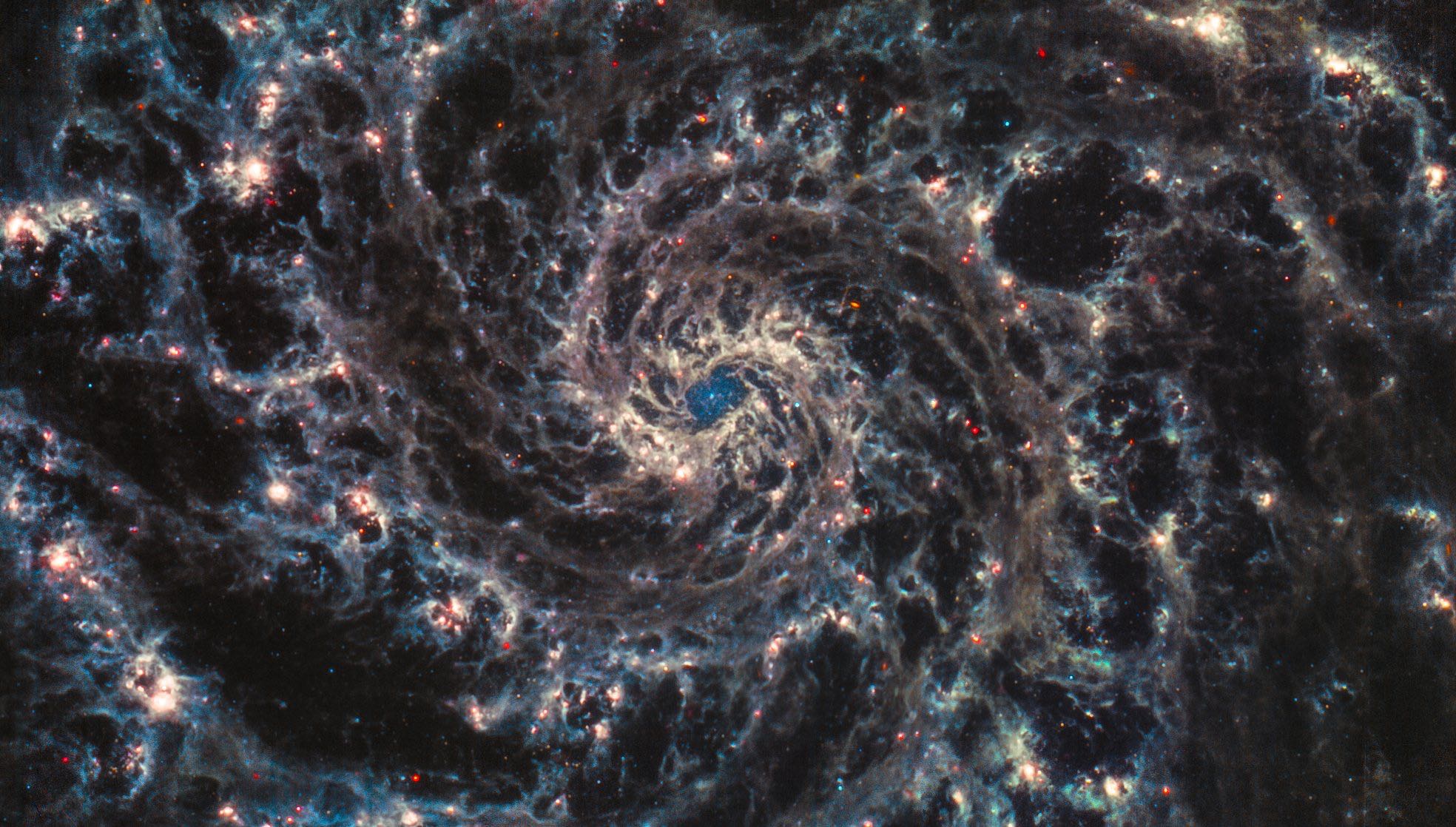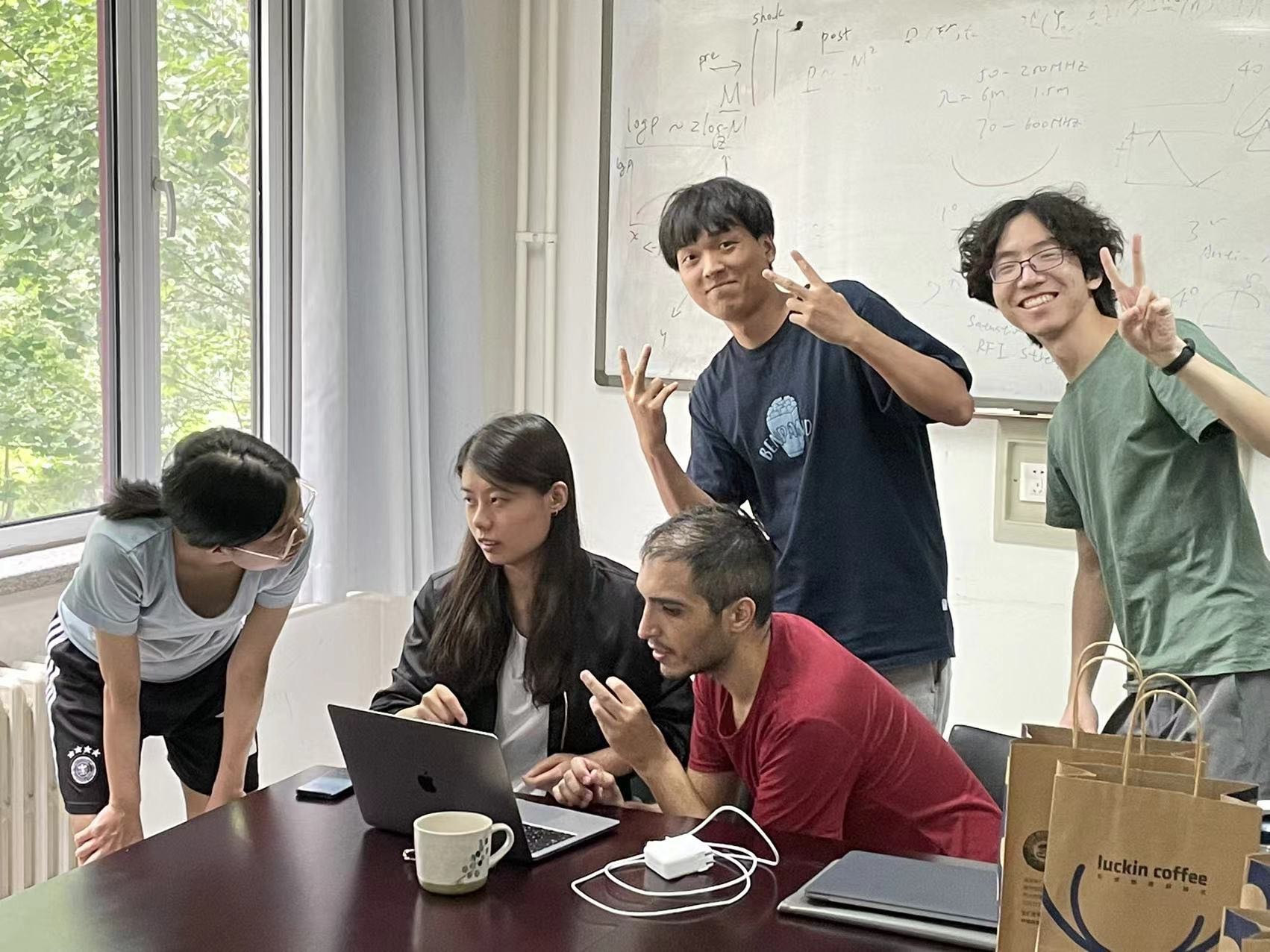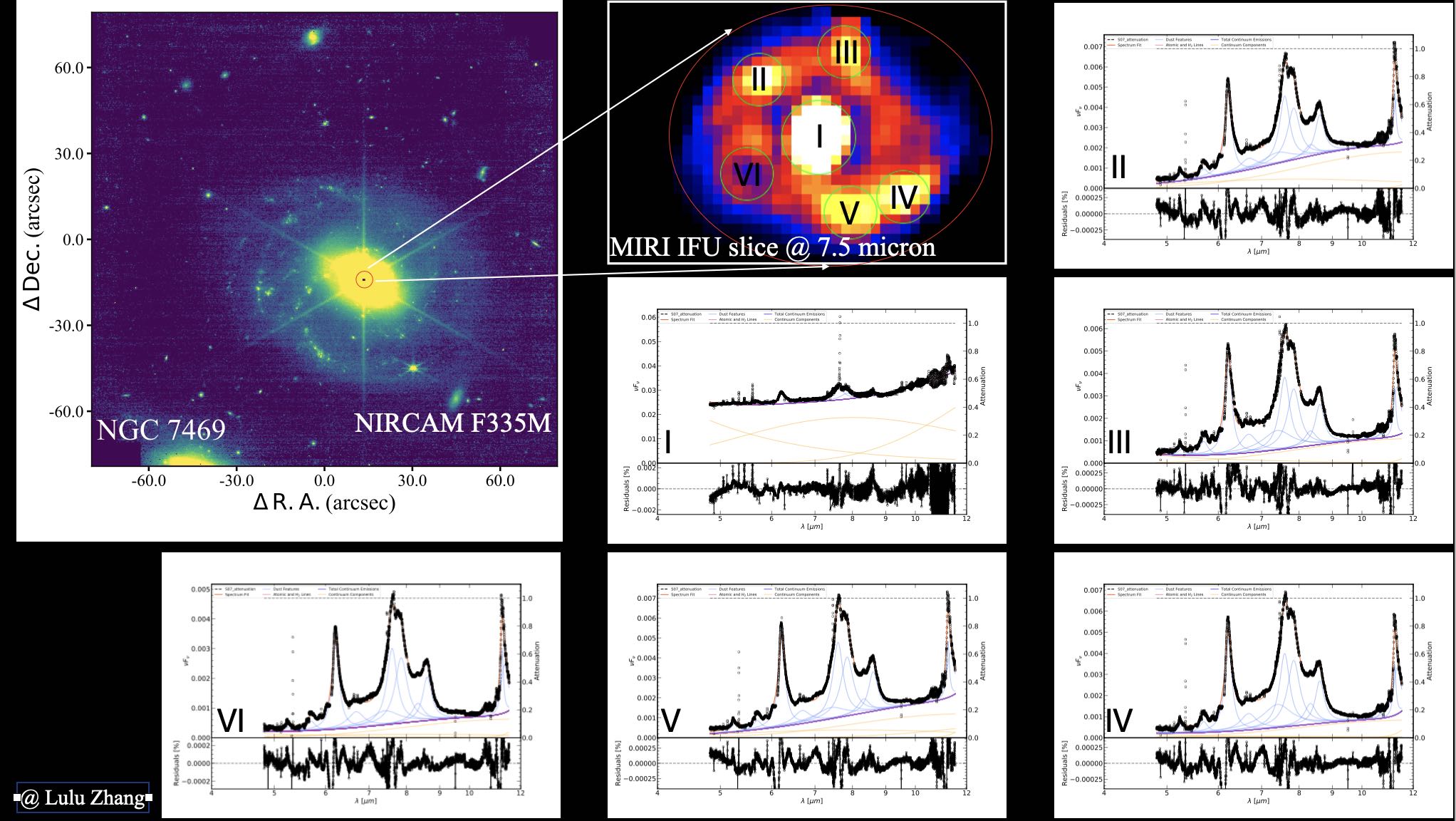PKU Astronomy Postdocs Juan Molina and Masafusa Onoue organized a 2 day hackathon on July 19-20 at Kavli Institute for Astronomy and Astrophysics to learn about data from the powerful new James Webb Space Telescope (JWST). JWST is a revolutionary infrared telescope, with unprecedented sensitivity at wavelengths designed to find the first stars and galaxies and to characterize exoplanet atmospheres.

The 12 students and postdocs who attended learned how to reduce and analyze data from the first observations from JWST. The exciting findings from the hackathon include spatial mapping of polycyclic aromatic hydrocarbon emission in NGC 7469, an infrared-bright starburst galaxy hosting an active black hole. They also found that the JWST has already captured the infrared energy distribution of some of the most distant galaxies astronomers have ever found. The experience will help astronomers at PKU prepare for approved programs and proposals for future programs.


The first data products from JWST were released on July 14. All data in Early Release Observations and in Early Release Science programs are publicly available to the entire world immediately upon release to increase the impact from these data, to build a strong user community, and to identify and solve systematic challenges in these first datasets.
Many PKU astronomers are participating in programs, with data expected in the coming months. Dr. Onoue is leading a 49.5 hr program to obtain a complete census of supermassive black holes and host galaxies in the early universe. Prof. Xuebing Wu and Prof. Linhua Jiang are participating in three programs to search for supermassive black holes in the early universe, both led by former PhD students, Dr. Jinyi Yang and Dr. Feige Wang. Prof. Luis Ho is involved in programs to study the physics of radiatively inefficient accretion in nearby active galactic nuclei and the coevolution of black holes and galaxies 10 billion years ago Prof. Gregory Herczeg is participating in a program to analyze the chemistry of protoplanetary disks.
